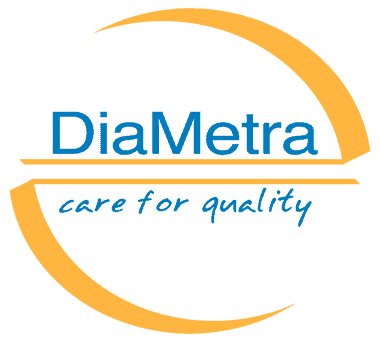Key Features and Values
– Same sample type can be used across all assays to simplify inclusion into routine serology work-up
– Ready to use reagents reduces hands-on time for assay preparation
– Long shelf life cost-effective solution by reducing wastage due to expired kits
– Suitable for inclusion on automated plate systems simplifies scale-up of test volume
– Supported by a complete panel of assays for supporting treatment monitoring of several forms of hormonal dysfunctions
Product Description
Immunoenzymatic colorimetric method for the quantitative determination of Thyroglobulin concentration in human serum. Thyroglobulin ELISA kit is intended for laboratory use only.
Scientific Description
a. Pre-operating diagnosis of thyroid tumours.
This application does not allow the differentiated diagnosis of the tumour as the values of TG seen in malignant and benign nodules are superimposable.
In patients treated surgically or with radiotherapy, long lasting TG levels suggest the presence of a residual carcinoma and/or carcinoma with metastasis.
The use of circulating TG as an indicator of recurrent tumours (metastasis marker) has an established clinical value: the increase of Thyroglobulinaemia indicates the need to undergo further analysis for confirming the diagnosis.
Publications
1. Beever K, Bradbury J, Phillips D, et al, “Highly sensitive assays of autoantibodies to Thyroglobulin and Thyroid Peroxidase”, Clin Chem, 35, 1949-1954 (1989).
2. Ladenson PW, “Optimal laboratory testing for diagnosis and monitoring of thyroid nodules, goiter, and thyroid cancer”, Clin Chem, 42, 183-187 (1996).
3. Mayo Medical Laboratories: test Catalog, Rochester, MN (1997).
4. Spencer CA, Takeucho M, Kazarosyn M, “Current status and performance goals for serum thyroglobulin assays”, Clin Chem, 42, 164-173 (1996).
5. Tietz N. Ed: Clinical Guide to Laboratory Tests. 3rd Ed. Philadelphia. Saunders (1995).
6. Surks, MI, Chopra, IJ, Mariash, CN, “American Thyroid Association guidelines for use of laboratory tests in thyroid disorders”, JAMA, 263,
1529-1532 (1990).
7. Ng, M., Rajna, A, Khalid, B, ”Enzyme immunoassay for simultaneous measurements of autoantibodies against thyroglobulin and thyroid microsomes in serum”, Clin Chem, 33, 2286-2288 (1987).
8. Spencer, CA, Takeucho M, Kazarosyn M, Wang CC, Guttler RB, Singer PA, et al, “Serum thyroglobulin autoantibodies; prevalence, influence on serum thyroglobulin measurements, and prognostic significance in patients with differentiated thyroid carcinoma”, J Clin Endocrinol Metab, 83, 1121-27 (1998).
9. Spencer CA, LoPresti JS, Fatemi S, Nicoloff JT, “Detection of residual and recurrent differentiated thyroid carcinoma by serum thyroglobulin measurements”, Thyroid, 9, 435-41 (1999).
10.Schlumberger M, Baudin E, “Serum thyroglobulin determinations in the follow up of patients with differentiated thyroid carcinoma”, Eur J. Endocrinol, 138, 249-252 (1998).

